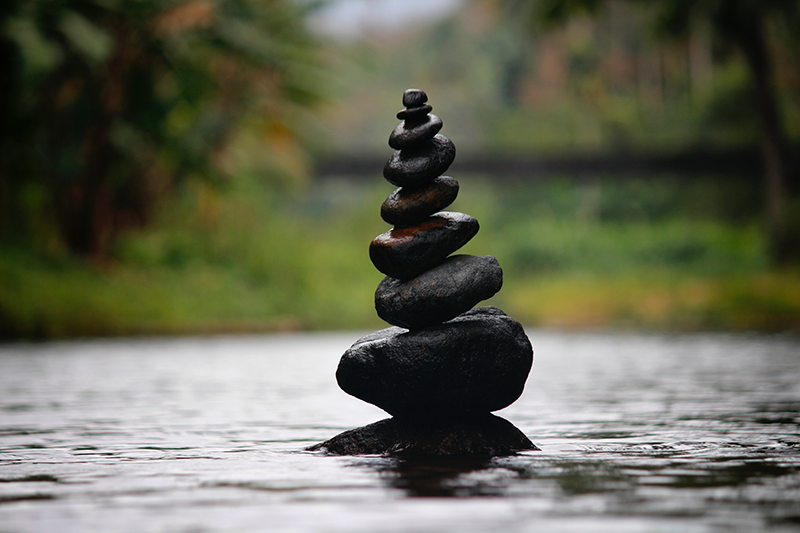The Nature of Progress

It would be lovely if progress were a smooth upward incline from playing our awkward first notes to maturing into a skilled, expressive musician. It would be great to finish each practice session playing everything better, and if, signing in to each lesson, we were confident in having advanced since the last class. However, musical growth doesn’t happen in a smooth easy line. We have our leaps and bounds forwards, but we also have setbacks, plateaus, and sometimes feel our playing has worsened.
 First and foremost, learn to enjoy music for music’s sake. Progress is important and feels good, but even for the most serious professionals, it must come second to enjoyment. Without love for music, playing an instrument is pointless, and advancement means nothing.
First and foremost, learn to enjoy music for music’s sake. Progress is important and feels good, but even for the most serious professionals, it must come second to enjoyment. Without love for music, playing an instrument is pointless, and advancement means nothing.
Still, it’s good to be aware of how you feel about your playing and recent progress. Plateaus and slips backward in our advancement often happen for concrete reasons that we can fix. Here are some common causes of bumpy progress and suggestions for how to solve them.
You’re not practicing consistently
Life happens. Sometimes we have to give priority to people, work, or other obligations over music. Every teacher understands this and has struggled with the same issues. The important thing is to prioritize consciously, and know when we are putting music aside for necessary reasons. Sometimes it’s unavoidable. Other times just a bit of creative planning could allow us to maintain a reduced, but productive, practice schedule.
Try to foresee when life will be busy. Set fun, simple goals that are easy to achieve and don’t require too much hard work, such as maintaining a few favorite pieces or sight-reading easy pieces. There is a huge difference between playing ten minutes a day and not playing at all. Putting in those few minutes will allow you to pick up where you left off when life calms down.
You’re not practicing correctly
This is the most common cause of plateaus and setbacks, and also the most difficult for students to see and acknowledge. Students often erroneously assume that a lot of playing time should equate to a lot of musical advancement. In fact, no amount of incorrect practice will help us improve. Improvement results only from correct, quality practice.
Effective practice habits take years to cultivate. Music makes unique demands on our focus, physical control, creativity, and analytical powers all at once. Few other life skills require coordination of such diverse faculties. If you’re new to music, assume that you’re new to practice. Discuss practice approaches frequently with your teacher, and strive to embrace their advice with the same diligence that you follow technical suggestions. [Read Leah Kruszewski's article on Crafting the Perfect Practice Session]
 You’re not living a healthy, balanced lifestyle
You’re not living a healthy, balanced lifestyle
Music demands our highest concentration and alertness. Physically, we need to be both relaxed and precise. Emotionally, we need a delicate balance of passion and control. If we’re going through a rough patch of any kind - physical, emotional, or mental - it’s certain to affect our playing. Music can also be a huge help during a rough patch, so don’t let yourself stop playing. Just be easy on yourself and don’t go looking for improvement.
A different side of the same issue is when serious music students take practicing to an extreme. It’s true that a rigorous music education requires years of devoted study. In addition to hours of daily private practice, music school demands yet more hours of ensemble rehearsals and complementary classes. For professional musicians alike, certain projects and performances may demand temporary sacrifices in our life balance. However, continually placing your practice schedule ahead of sleep, social life, and personal health will never benefit your music. Place devotion to your instrument within the context of a happy, healthy lifestyle, and your music will thrive.
You need to experiment technically
Every human hears, experiences, and thinks about music differently. Our hands and bodies have different shapes, and we have to solve unique challenges in order to get the sound we want from our instrument. Teachers make suggestions based on their own experience and their perceptions of your playing, but you are ultimately responsible for your own technical development. If you hit a technical wall in an area such as speed, tone, or fluidity, and no external advice seems to help, you may have to be your own guide.
Risks that all guitarists have to take at some point include: changing the shape of our fingernails, modifying our posture or playing position, and trying out a new right-hand angle for a specific technique. Changes in technique take time to implement, and not all experiments have positive outcomes. Classical and flamenco guitarists, for example, know the frustration of fingernail experiment gone wrong. We know instantly when a new shape doesn’t work, but we must suffer weeks of bad tone and awkward touch until our nails grow back. However, exploring always helps us in the long run. Failure to take risks is much more detrimental to music than the experimental ‘failures’. The experimental ‘failures’ serve to eliminate possibilities and teach you what not to do, and the knowledge you gain will help you in your next big step forward.
 You need to explore creatively
You need to explore creatively
Sometimes we need to get out of our comfort zone to arrive at the next level musically. Some players approach music with brilliant sensitivity but too much caution. While they play accurately and expressively, they avoid pieces that demand velocity, volume, and a degree of ‘showiness’. Other players are effortlessly loud and confident, and love pieces that allow them to show off fancy scale runs. These players may find themselves at a loss when they have to play a lyrical, emotional piece. Explore the extremes that make you uncomfortable. Music has many faces and demands a range of interpretive abilities. Discovering a hidden side of your personality may be just what your next musical growth spurt is waiting for.
No real reason
If you’re being honest with yourself and can’t find a reason for your musical plateau, there may simply not be one. We all have our off-days in everyday life - days when we can’t articulate thoughts well, trip over our own two feet, or forget important parts of our routine. If you’ve ever done a competitive sport, you know you can't expect to set a personal best in every competition, and not every season is better than the last.
Every area of life has its peaks and valleys, and music is no different. Not every dip backward is a crisis, and not every plateau demands that we respond with some drastic changes in your curriculum, lessons, playing technique, or musical goals. If you go through a period (days, weeks, months) when you’re not playing as well as you want, try to relax and enjoy yourself. Let go of the need for constant improvement over a short timescale. As long as you keep playing with correct, progress-oriented practice habits and have patience, you will grow.
Learn more from Leah Kruszewski.




